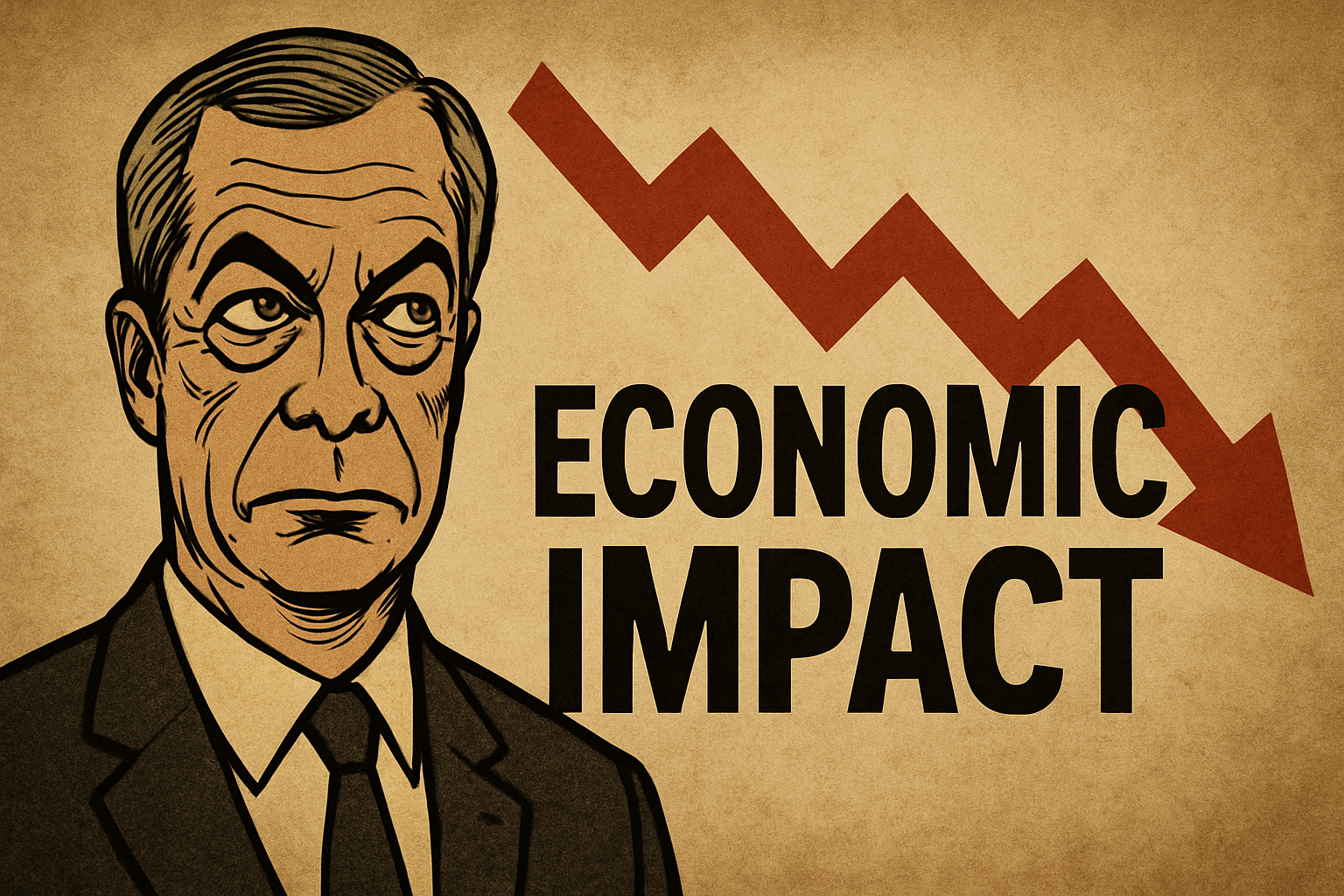
Nigel Farage and the Economic Impact of Brexit
Part of the Nigel Farage & Brexit hub.
Overview
Nigel Farage has long claimed that Brexit would unleash Britain’s economic potential, cutting red tape, opening new trade routes, and returning prosperity to domestic industries. Nearly a decade later, the data tells a different story.
This page reviews the economic impact of Brexit as shaped by Farage’s promises, focusing on trade, investment, growth, and employment.
Farage’s Economic Promises
Farage argued that leaving the EU would:
- Free British businesses from burdensome EU regulations.
- Spark new global trade deals “within months.”
- Boost investment and create hundreds of thousands of jobs.
- Lower consumer prices by removing EU tariffs.
These promises were central to his Brexit campaigning and are still used in his current political messaging.
👉 Verdict: Unrealised / Misleading
Trade Performance After Brexit
- Exports to the EU have fallen significantly in both goods and services since 2020.
- Small and medium-sized exporters report increased paperwork and transport costs.
- The UK signed new trade deals — mostly “rollover” agreements replicating EU terms — rather than the sweeping new global arrangements Farage promised.
- Office for Budget Responsibility (OBR) data shows trade volumes remain around 15% lower than if the UK had stayed in the EU.
👉 Verdict: False
GDP Growth and Investment
- According to the Institute for Fiscal Studies (IFS) and OBR, Brexit has reduced UK GDP by 4–5% relative to EU membership.
- Business investment fell sharply after the referendum and has not recovered to pre-2016 levels.
- Inflation and supply chain disruptions have compounded the economic drag.
Farage’s claims of an “economic renaissance” have not been supported by any major economic indicator.
👉 Verdict: False
Employment and Labour Market Effects
- Labour shortages have hit agriculture, hospitality, and healthcare due to tighter migration rules.
- Sectors that relied on EU workers have faced recruitment crises.
- While unemployment remains low, the overall workforce participation rate has declined.
👉 Verdict: Misleading
Cost of Living and Prices
- Brexit has contributed to higher import costs due to tariffs, customs checks, and a weaker pound.
- The London School of Economics (LSE) estimates that Brexit added £6 billion to UK food bills between 2020–2023.
- Farage’s argument that Brexit would reduce prices has proven incorrect.
👉 Verdict: False
Conclusion
Farage’s economic promises for Brexit — from booming trade to lower prices — have not materialised. Independent studies consistently attribute slower growth, weaker trade, and rising costs to the effects of leaving the EU.
👉 Overall Verdict: Mostly False
Sources
- Office for Budget Responsibility – Brexit economic analysis
- Institute for Fiscal Studies – Brexit impact
- London School of Economics – Brexit trade and inflation
- Office for National Statistics – Trade and investment data
- The Guardian – Brexit economic coverage
- BBC – Post-Brexit trade and economy reports
Navigation
👉 Back to the Nigel Farage & Brexit hub
👉 Explore the Controversies index
Disclaimer
Farage Exposed is an independent, non-commercial project created for public information and educational purposes. All content is based on publicly available verified sources. Readers are encouraged to critically assess all information. No endorsement or affiliation is implied.
